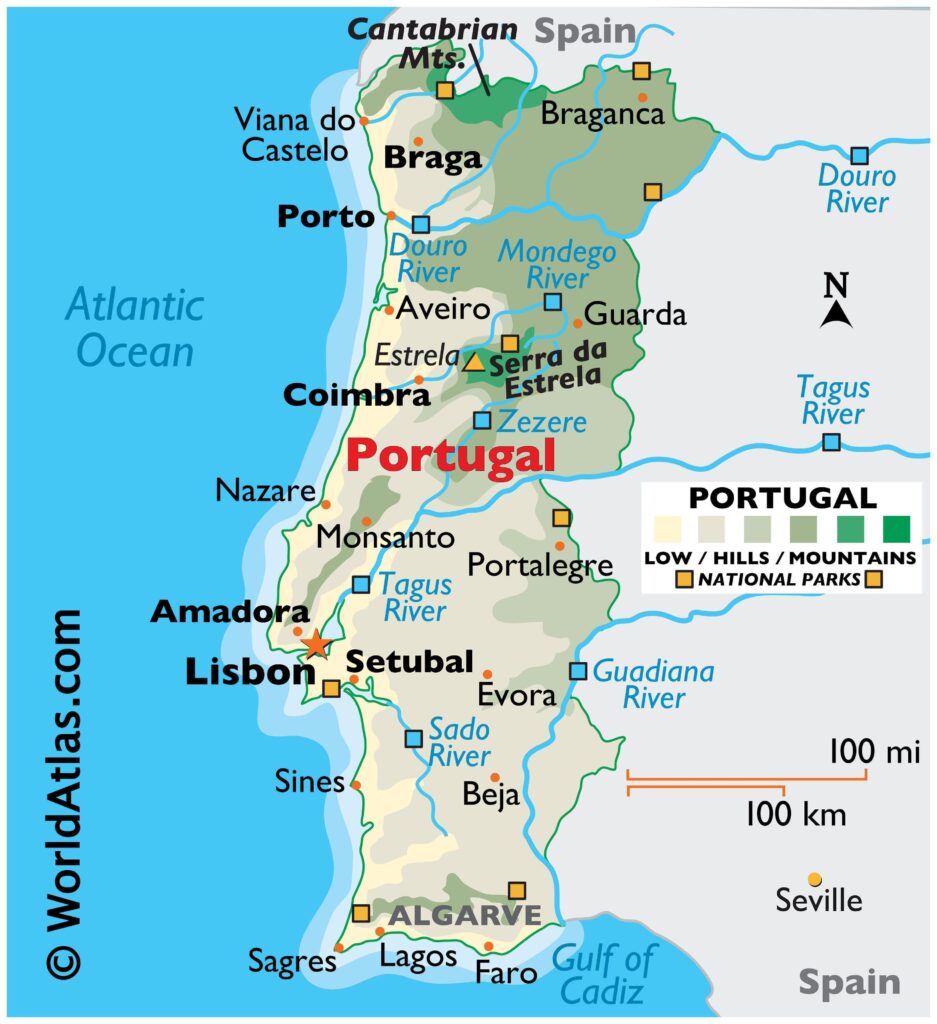When people hear we are moving to Portugal their first question is always, “Why Portugal?” Well, there are lots of reasons, among them are affordability, quality of life, and climate.
The second most common question is, sadly, “where’s Portugal?” It’s across the Atlantic Ocean.

Affordability
As more and more U.S. citizens look to escape the turmoil of tRump 2.0, Europe is becoming more expensive, but Portugal is still relatively affordable in terms of housing, day to day living expenses, and especially healthcare.
On a recent visit, we stopped at a cafe with with two other people. We all had an espresso or sparkling water and the bill was €4.95 (about $5.60). You couldn’t have had one espresso in the U.S. for that price.
Quality of Life
Portugal has a very relaxed pace of life. No one is in a rush, no one works 24/7, and lunch lasts 2-hours. Someone told us that a major faux pas in Portugal is to ask someone what they do because Portuguese people do not define themselves by their job. To say that the Portuguese have a healthy work-life balance is an understatement.
The 2024 Global Peace Index ranks Portugal as the 7th safest country in the world. The U.S. ranked an astonishingly bad 132 out of 163! Only one spot above Iran. The Portuguese people are welcoming, kind, and treat visitors with warmth and respect. How refreshing!
Climate
Although it’s a relatively small country, the climate in Portugal is diverse. It is generally classified as a Mediterranean climate, characterized by hot, dry summers and cool, wet winters. However, the southern coast along the Mediterranean Sea is much drier and sunnier than the north coast along the Atlantic Ocean. Central Portugal is influenced by both the Mediterranean and Atlantic with mild winters and warm summers.
Healthcare
Although it was called out under affordability, healthcare deserves its own mention. Portugal has universal public healthcare available to all residents, including expats who register as residents, and services are free or require a small co-pay. Many people describe the public system as overburdened and slow, but this generally applies to the major population centers — Lisbon and Porto. In the more rural parts of the country, the system works very well.
In 2024, the Portugal healthcare system ranked 23rd overall in the World Index of Healthcare Innovation. For quality it ranked 11th. In comparison, the U.S. consistently ranks last among high-income countries.
Food, Culture and Heritage
Portuguese cuisine is known for freshness like most Mediterranean countries and is famous for seafood. Everyone still grows a garden. Even in the cities people find little plots to grow on or grown in containers on their patios. The country also produces a wide variety of outstanding wines.
Portugal has a long and varied history, having been occupied by the Romans, Germanic tribes, and Muslims. Modern Portugal traces its origins to the late 9th century and the Kingdom of Portugal was established in 1128. In the 15th and 16th centuries Portugal was a major colonial power. This has resulted in Portuguese being the second most spoken Romance language after Spanish, with an estimated 250 million speakers, and the 5th most spoken language in the world. Portuguese is the official language of Portugal, Brazil, Cape Verde, Angola, Mozambique, Guinea-Bissau, São Tomé and Príncipe, East Timor, and Equatorial Guinea.